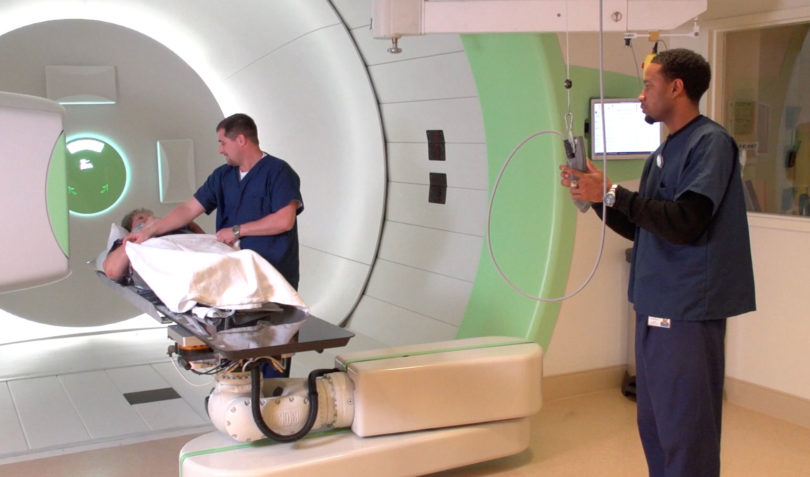“Regular” radiation, regardless of the source, be it a linear accelerator, an implanted radioactive source or one of the new computer-guided robotic machines, typically means x-rays. X-rays, when pointed at the human body, will immediately begin to deposit energy. As they move deeper, they give up more and more of their energy, hitting a peak then gradually tailing off until they exit the opposite side of the body. X-rays deposit most of their energy in the first few inches of their travel in the body, which may be far away from the actual tumor site. Radiation damage may be caused throughout this long path.
Protons are an entirely different form of radiation from x-rays and they deposit their energy in the body to kill the cancer cells differently. Protons pass through the initial layers of tissue depositing little of their energy. But, at a programmed depth determined by the beam energy, protons will very quickly give up all of their energy and stop. There is no exit dose and much less normal tissue is affected. For many cancers, depending on the part of the body affected, there will be a normal tissue-sparing advantage with protons as compared to x-rays.
Proton therapy is FDA-approved and covered by Medicare, Medicaid and most insurance providers.







